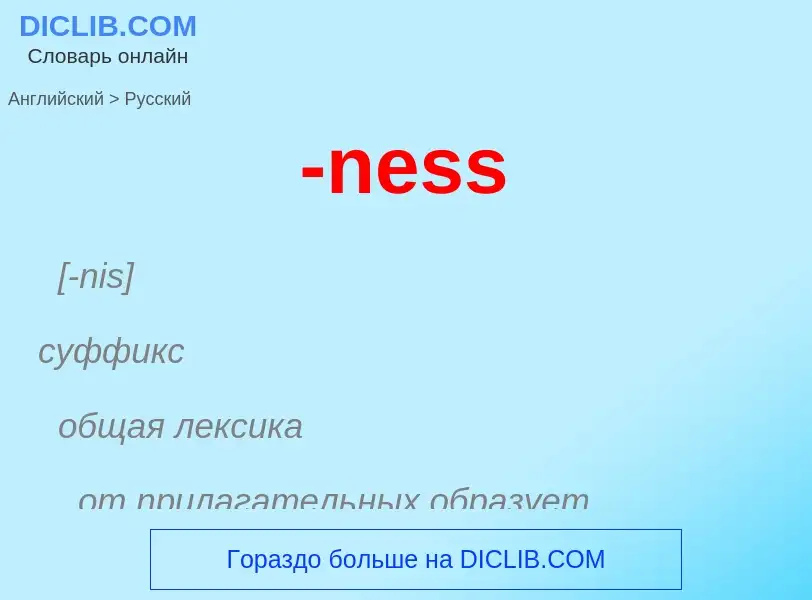Traducción y análisis de palabras por inteligencia artificial ChatGPT
En esta página puede obtener un análisis detallado de una palabra o frase, producido utilizando la mejor tecnología de inteligencia artificial hasta la fecha:
- cómo se usa la palabra
- frecuencia de uso
- se utiliza con más frecuencia en el habla oral o escrita
- opciones de traducción
- ejemplos de uso (varias frases con traducción)
- etimología
-ness - traducción al ruso
[-nis]
суффикс
общая лексика
от прилагательных образует существительные со значением отвлечённого качества (реже - состояния)
[nes]
существительное
общая лексика
мыс, нос (только в геогр. названиях)
география
мыс
нос (обыкн. в названиях)
['nes]
Definición
Wikipedia
In linguistics, a suffix is an affix which is placed after the stem of a word. Common examples are case endings, which indicate the grammatical case of nouns, adjectives, and verb endings, which form the conjugation of verbs. Suffixes can carry grammatical information (inflectional suffixes) or lexical information (derivational/lexical suffixes). An inflectional suffix or a grammatical suffix. Such inflection changes the grammatical properties of a word within its syntactic category. For derivational suffixes, they can be divided into two categories: class-changing derivation and class-maintaining derivation.
Particularly in the study of Semitic languages, suffixes are called affirmatives, as they can alter the form of the words. In Indo-European studies, a distinction is made between suffixes and endings (see Proto-Indo-European root). Suffixes can carry grammatical information or lexical information.
A word-final segment that is somewhere between a free morpheme and a bound morpheme is known as a suffixoid or a semi-suffix (e.g., English -like or German -freundlich "friendly").

